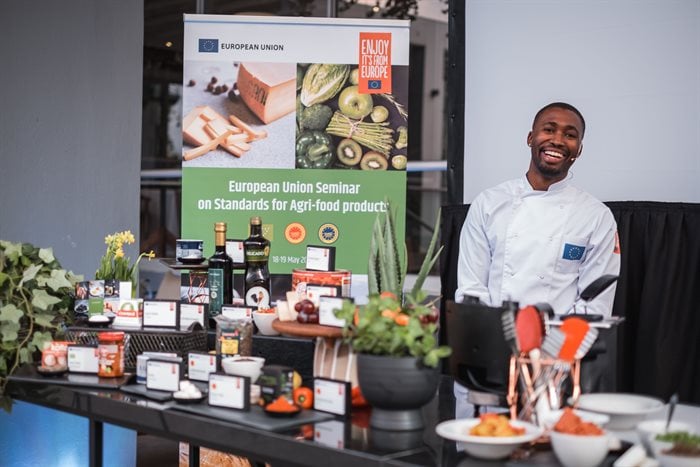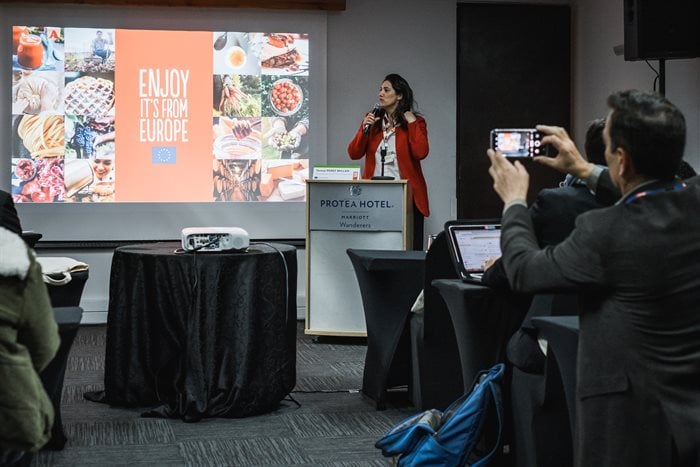
Top stories






More news

Marketing & Media
Ads are coming to AI. Does that really have to be such a bad thing?















Internationally renowned as one of the most rigorous food protection regimes in the world, the EU’s SPS system ensures that European products exported to South Africa - and all around the world - are safe, traceable, and of the highest quality possible. The event welcomed South African government representatives, importers, chambers of commerce, retailers, the hospitality sector, consumer organisations and the media.
There is a need for agri-food trade flows between the EU and South Africa to improve, even more with the Economic Partnership Agreement (EPA) in place. Accelerating trade in agri-food products is already a testament to the popularity of Europe’s high quality and safety standards for food and drink amongst South African consumers.
This interactive seminar took a deep dive into the reciprocal trade benefits and demand for high-quality products between the EU and South Africa. It gave participants valuable insights into how their businesses can leverage the quality, safety, authenticity and sustainability of European products to win loyal customers in South Africa.
Opening the seminar, John Clarke, director for international relations at European Commission’s department for agriculture and rural development, reminded that the EPA is not only about improving business, but also about ensuring that rules and opportunities created by the agreement benefit both sides and contribute to sustainable development. D. Serage, acting deputy director general of the department of agriculture, land reform and rural development of South Africa affirmed his country’s general support to free trade. At the same time, in response to South Africa’s interest in development assistance, H.E. Raul de Luzenberger, deputy EU ambassador to South Africa highlighted that opportunities under the cooperation agreement were far from being exhausted.
Live from Johannesburg, the seminar included an animated roundtable debate on how to boost EU-South Africa trade relations in agri-food products. The debate first explored current impediments to enhanced agri-food trade between the EU and South Africa. The participants who represented mainly the local business community agreed that the three main issues are a mix of administrative burden, logistical constraints as well as sometimes the price of EU agri-food products. Dr John L. Purchase highlighted an exponential growth in EU agri-food exports to South Africa, exceeding 20% in the last three years, despite a notable fall in EU poultry exports to the country.

Meanwhile, Georg Southey of Merlog Food, executive committee member of the Association of Meat Importers and Exporters emphasised the need for policy consistency and predictability. According to him, South African businesses need to import specialised food products, such as higher value meat cuts which are not necessarily available locally. The EU meat products offer traceability and availability in terms of transport links to South Africa. He encouraged development of trade and equivalence of standards as well as consumer education and sharing of information on the EPA opportunities.
Matlou Setati, executive of the Food Safety Initiative at the Consumer Goods Council of South Africa pointed out that consumers in her country still needed more awareness about protected names and designations of origins of authentic local products. This knowledge could be of particular asset for the maturing middle class segment of the market.
Speakers also stressed the need for the traders to pay attention to the peculiar, very varied consumer strata of the South African society, with middle class representing around 20% of them.
The seminar also hosted experts presenting the EU’s sustainability agenda (the EU Green Deal and Farm to Fork Strategy), as well as EU food quality and safety systems. Speakers further elaborated on the European Single Market with regard to food production, food safety, animal welfare and plant health. The seminar also presented the strict policy the EU holds in relation to the restrictive use of pesticides and antimicrobials in food production. Finally, the event included sessions on trade opportunities offered by the EU’s Geographical Indications (GI) and organic farming systems.
The representatives of EU major producers’ organisations representing the meat, dairy, wines, spirits, beers, fruit and vegetables and olive oil sectors presented the practical approaches to the food safety and quality standards applicable to their products.
Finally, the seminar featured a cooking show by a renowned local chef Katlego Mlambo and MasterChef judge Pete Goffe-Wood who gave selected EU food products an African twist.
90 people attended the seminar physically while 30 joined online.